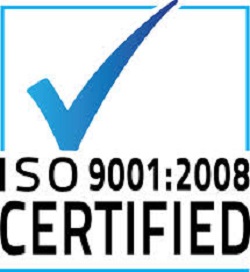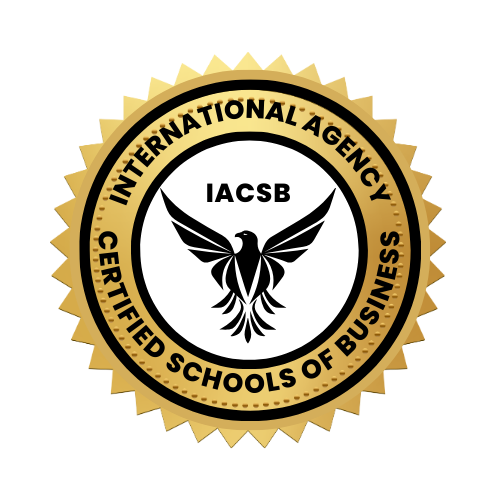


The next section deals with operating expenses. These are expenses that go toward supporting a company’s operations for a given period – for example, salaries of administrative personnel and costs of researching new products. Marketing expenses are another example. Operating expenses are different from “costs of sales,” which were deducted above, because operating expenses cannot be linked directly to the production of the products or services being sold. Depreciation is also deducted from gross profit. Depreciation takes into account the wear and tear on some assets, such as machinery, tools and furniture, which are used over the long term. Companies spread the cost of these assets over the periods they are used. This process of spreading these costs is called depreciation or amortization. The “charge” for using these assets during the period is a fraction of the original cost of the assets. After all operating expenses are deducted from gross profit, you arrive at operating profit before interest and income tax expenses. This is often called “income from operations.” Next companies must account for interest income and interest expense. Interest income is the money companies make from keeping their cash in interest-bearing savings accounts, money market funds and the like. On the other hand, interest expense is the money companies paid in interest for money they borrow. Some income statements show interest income and interest expense separately. Some income statements combine the two numbers. The interest income and expense are then added or subtracted from the operating profits to arrive at operating profit before income tax. Finally, income tax is deducted and you arrive at the bottom line: net profit or net losses. (Net profit is also called net income or net earnings.) This tells you how much the company actually earned or lost during the accounting period. Did the company make a profit or did it lose money? Earnings Per Share or EPSMost income statements include a calculation of earnings per share or EPS. This calculation tells you how much money shareholders would receive for each share of stock they own if the company distributed all of its net income for the period. To calculate EPS, you take the total net income and divide it by the number of outstanding shares of the company. Cash Flow StatementsCash flow statements report a company’s inflows and outflows of cash. This is important because a company needs to have enough cash on hand to pay its expenses and purchase assets. While an income statement can tell you whether a company made a profit, a cash flow statement can tell you whether the company generated cash. A cash flow statement shows changes over time rather than absolute dollar amounts at a point in time. It uses and reorders the information from a company’s balance sheet and income statement. The bottom line of the cash flow statement shows the net increase or decrease in cash for the period. Generally, cash flow statements are divided into three main parts. Each part reviews the cash flow from one of three types of activities: (1) operating activities; (2) investing activities; and (3) financing activities. Operating ActivitiesThe first part of a cash flow statement analyzes a company’s cash flow from net income or losses. For most companies, this section of the cash flow statement reconciles the net income (as shown on the income statement) to the actual cash the company received from or used in its operating activities. To do this, it deducts from net income any non-cash items (such as depreciation expenses) and any cash that was used or provided by other operating assets and liabilities. Investing ActivitiesThe second part of a cash flow statement shows the cash flow from all investing activities, which generally include purchases or sales of long-term assets, such as property, plant and equipment, as well as investment securities. If a company buys a piece of machinery, the cash flow statement would reflect this activity as a cash outflow from investing activities because it used cash. If the company decided to sell off some investments from an investment portfolio, the proceeds from the sales would show up as a cash inflow from investing activities because it provided cash. Financing ActivitiesThe third part of a cash flow statement shows the cash flow from all financing activities. Typical sources of cash flow include cash raised by selling stocks and bonds or borrowing from banks. Likewise, paying back a bank loan would show up as a use of cash flow. Read the Footnotes
|
USA - Asia - Russia - India - EU - West Indies - China - Indonesia - Latin America - Arabia - Africa

Home Home About Requirements Recognition Certifications Register News Benefits Mission Board Course Certifications Apply Training Providers CEO Message Accreditations Application Handbook Be a Training Provider Renew Certification Continuing Ed Speakers Ethics Sample Indonesia Contact Us ACBSP How To Use SIS Certification Contact Online Certification Arab Academy Accredited Convert Courses To Certification Qualifying Degrees CFM Chartered Financial Manager SIS IAS CERT Global Advisors FINTECH CHFM CHARTERED FINANCIAL MANAGER Reg. Payments IP Home George Mentz Colorado Springs CEO GAFM - Global Academy of Finance & Management Chartered Wealth Manager Training Membership CCO Higher Institute IP List Management Consulting Jobs Project Management Certifications CWM Chartered Wealth Manager Terms AFA Approved Masters Degrees Economics Certification Economics Degrees Management Degrees Finance Degrees Accounting Degrees Careers
Reference to FINRA Certification Guide & Standards
FINRA EDUCATION CWM Chartered Wealth Manager ® Chartered Financial Manager ® AFA Accredited Certified Financial Analyst ® AMA Accredited Certified Management Accountant ® CAM Chartered Asset Manager CTEP Chartered Trust and Estate Planner ® RFS Registered Financial Specialist CMA Chartered Market Analyst FAD Financial Analyst Designate CPM Chartered Portfolio Manager - IACSB * Chartered Financial Manager FINRA * Certified Risk Analyst FINRA * MFP Master Financial Planner ® - Aspen Commission - Best Online University -







